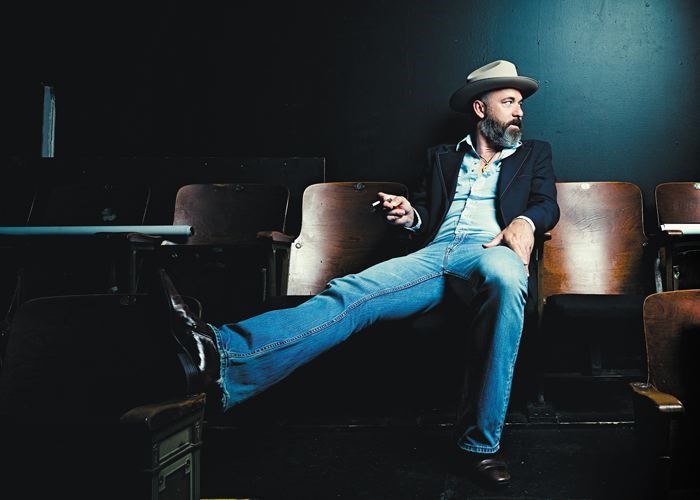His first snap of Prince George was cold by festival and warm by reception.
His reception started static but tuned in clearer to the crisp northern air of this city at the centre, the territory of coming together.
So he came back and comes back and made P.G. a plan for his future and our future, as performer and audience wash together like the confluence of great rivers, like the thunder of east-west trains crossing the north-south tracks, like the roadmap yielding to highways laying low in our valley below.
He is C.R. Avery, a man of few letters on the signature line but all the letters of the rainbow when he speaks. Canada is all about clean white sheets - ice and pages - and Avery is in the NHL of ABCs. His writing and spoken-word performances turn on red lights from coast to coast and waves our flag on the world stage. Saturday, the world is Prince George. The stage is The Legion.
And he's bringing an all-star band, putting the music to the message.
His latest album is lyrical poetry - he sings it instead of the speaking he's renowned for. It re-proves his talent is a stew, not thin broth.
He is a musician, a prose writer, a poet, a rapper, a beat-boxer, and a whisky singer like Tom Waits back in '55. And those fans of his oratory skills can still feel literary leakage through the gaps in the beat.
He told The Citizen that the traits of spoken-word performance defined his thinking, when he sits down now to write anything, and the presence of the spoken-word spirit puts a vibe out into the room and blankets the audience. Those ripples become waves when other spoken-word artists open for his band, or just come to the show to lend their presence.
That spirit tells everyone "We're going to be touching on subject matter in this show. This is not background music. It tones everyone's ears to listen. The truth is, that's what I came up in, and it doesn't matter if I'm playing with the Prague Symphony Orchestra, a dirty blues band, or if I'm doing a burlesque show. When you come out of spoken-word, you're going to be telling stories till you die."
Music is about tickling the electronic frequencies between body parts and the machines of instrument and ear. It's been a bother to his mind that industries have been created around keeping those frequencies locked in rooms: the country room, the jazz room, the bluegrass room, the rock room... It doesn't have to be this way. It wasn't that way at all when rock 'n' roll broke through.
"The Beatles brought Gershwin and Chuck Berry together," he said. They aren't such far-flung forces.
Audiences love it all. The latest new bend in culture is hiphop and rap. He's called those expressionists the journalists of the street.
To him, they are "the people who took the f-ing record player and turned it into an instrument because (1980s U.S. President Ronald) Reagan took all the music programs out of the inner cities. It's no different than the innovation of taking a piece of metal and sliding down the neck of a guitar. And any spoken-word artist that goes out on stage is going to also look at Richard Pryor and Lenny Bruce and Amy Schumer. My favourite spoken word artists will make you laugh and cry in the same 40 seconds."
And it's all spoken word to him, whether the mouth made it into a song, a rap, a speech, a protest chant. As long as it's authentic, he believes, it'll find a home with the audience.
He is speaking, singing, performing for his own personal edification and from that truth comes the open door for a true audience relationship.
"It's not precious, you know. I spend probably 30 per cent of the show freestyling, making it up on the spot. That's the oral tradition. That's why The Tragically Hip are who they are, because they weren't catering to the elite, they were making art for the people, and that's very important."
He puts up his verb dukes and takes his noun jabs on Saturday night at the Prince George Legion, with special guest Eliza Mary Doyle opening the evening.
His latest album is All the Angels Didn't Scare Me.



